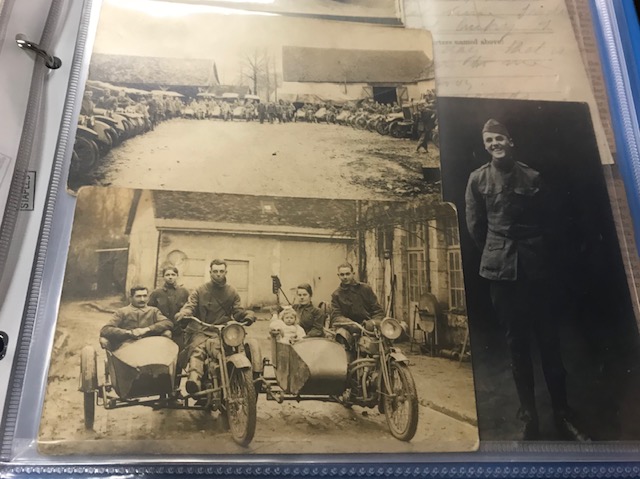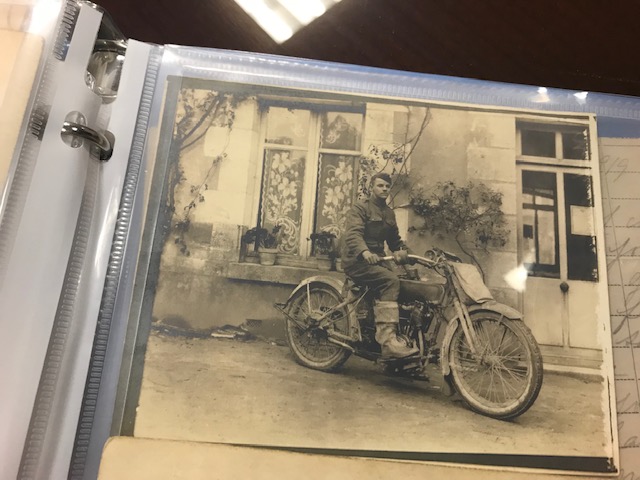By Ryan Conchado and Patrick Quinn O’Neill, SCSU Journalism students
Ryan Conchado and Patrick Quinn O’Neill, journalism students at Southern Connecticut State University, reported this story in 2018 as part of Journalism Capstone coursework on World War I.

Connecticut resident Cpl. Carlton Stevens rode his motorcycle 827 miles to deliver the terms of the armistice to Gen. John J. Pershing on Nov. 10, 1918.
The United States used motorcycles, pigeons and even runners to deliver messages during the war, according to his grandson, Eric Stevens of Thomaston.
“Radio communication, most of it was wired and there were some wireless terminals but most of it was wired and would get destroyed under shell fire,” said Carlton Stevens’ grandson, Eric Stevens.
Carlton Stevens risked his life on a daily basis to ensure messages were delivered, Eric Stevens said. Carlton Stevens was one of 10 soldiers who were selected by the U.S. Army Signal Corps to dispatch messages via motorcycle. The others were all killed in action.
The armistice effectively ended the war, and Stevens bared the honor of delivering that message to Paris, France on behalf of the United States.
Carlton Stevens faced many dangers traveling hundreds of miles a day, including being shot at by German soldiers and falling off of his bike.
“Once he was stuck for three days in a ditch after he had an accident, and I guess the shell fire was too heavy,” said Eric Stevens. “He had some bacon, and chocolate, and rain water from his helmet.”

Carlton Stevens never actually took part in combat.
Eric Stevens described another incident during the trench warfare.
“The biggest thing that he said was once he was in a trench and a friend next to him got his head, just blown clear off,” said Eric Stevens. “You know, I know he saw a lot. He didn’t have to see during hand-to-hand combat, but he was definitely shot at a lot.”
Carlton Stevens missed his family throughout his time overseas. He wrote home whenever he could, telling his family of his experiences in the Army.
A theme of the letters Carlton Stevens had written home was the general uncertainty of the war. Carlton Stevens didn’t know from day to day where he would be stationed.
Eric Stevens’ interest in telling his grandfather’s stories began when he was a child and found his grandfather’s military belongings and letters.